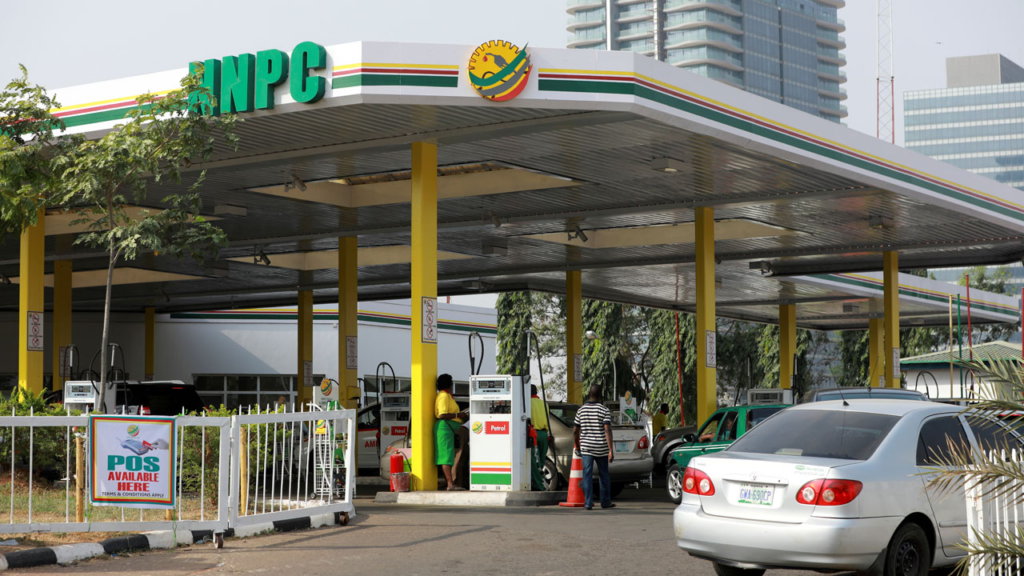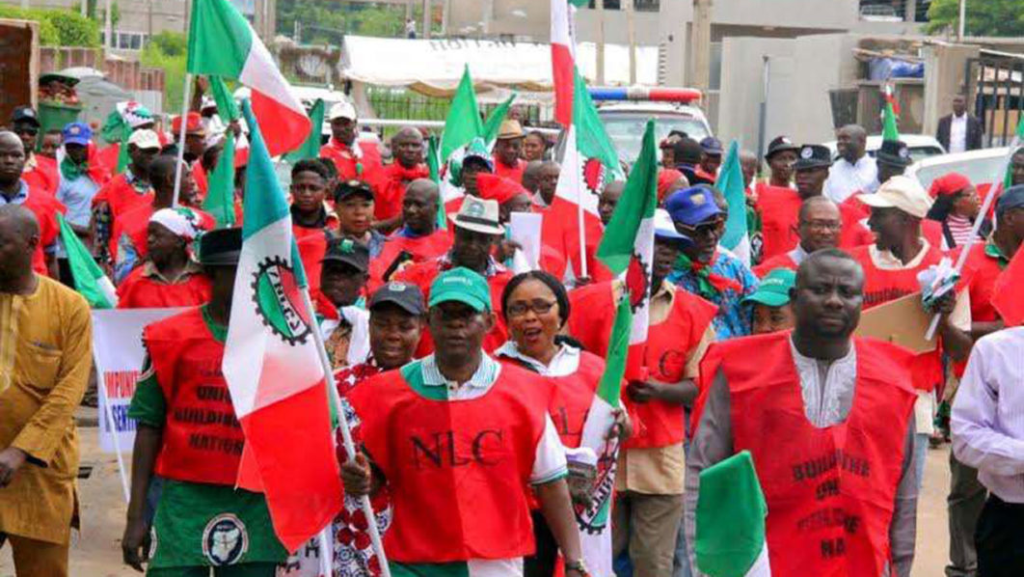The Nigerian Labour Congress (NLC) has announced that following the removal of the fuel subsidy, it will embark on a nationwide strike on Wednesday, June 7.

[NNPC filling station / Premium Times]
Despite the general acceptance that the subsidy had to go—particularly from the leading presidential candidates, including the Labour Party (and, by extension, the labour union), the NLC insists on a strike. So what’s happening, and what’s the way forward?
The labour unions’ position
On June 4, the NLC and the Trade Union Congress (TUC) shunned a meeting with the government delegate chosen to address the subsidy matter. The meeting had in attendance the Governor of the Central Bank of Nigeria, Godwin Emefiele, the Managing Director of the Nigerian National Petroleum Corporation (NNPC), Mele Kyari, Dele Alake, and Adams Oshiomole, among others. The TUC said they boycotted the meeting because the representatives had no official authority to negotiate on the government’s behalf.

[NLC / Premium Times]
From the viewpoint of the labour unions, the government doesn’t respect them.
According to Joe Ajaero, the NLC president, the meeting had no purpose. In a TV interview on Sunday, Ajaero said:
“Of what use is today’s meeting? As of Tuesday night, I had a meeting with the president of the TUC and some other government officials. I told the NNPCL MD that increasing the pump price would be considered war.”
The TUC said they want a minimum wage increase, tax holidays for certain groups of workers, and a return to the previous petrol pump price of ₦195 per litre while negotiations are ongoing.
The government’s position
One man who may know more than anyone about strikes and subsidy removal is former NLC president Adams Oshiomole. Having fought on both sides of the divide, he was on TV after the boycotted meeting with the trade unions to share his insights about the subsidy removal.

[Adams Oshiomole / Ripples]
Oshiomole believes the labour unions have every right to be aggrieved. He argued that if the subsidy removal could save up to ₦6 trillion, the government could use the savings to fix infrastructural deficits and ensure that lecturers never embark on strike. Oshiomole repeatedly said during the interview that he wasn’t the government spokesperson. So why was he negotiating with the trade unions on the government’s behalf?
Oshiomole said some possible proposals to cushion the fuel price hike include increasing the minimum wage. He also spoke on providing tax breaks so workers pay less taxes and increase their take-home pay. Oshiomole said the government was considering providing buses, which could reduce transport costs.
A good faith gesture
Another meeting between the parties is scheduled for Tuesday before Wednesday’s looming strike.
That said, Tinubu has had a shaky start to his office. Despite saying he’d like to emulate former president Umaru Musa Yar’Adua, his actions since assuming office have been markedly opposite. In Yar’Adua’s inaugural speech, he admitted that the process that brought him to power was flawed. Tinubu, by contrast, said his election was “fairly won.”

[Bola Tinubu/ Punch]
Unlike Yar’Adua, who publicly declared his assets, Tinubu is unlikely to do so, possibly only before the Code of Conduct Bureau.
Yar’Adua brought down the pump price while in office, and Tinubu’s first act was to declare that the “fuel subsidy is gone”. It’s now time for Tinubu to lead by example.
Tinubu’s big challenge is making Nigerians see that he’s in the grind with them and empathises with their suffering. It’s not enough to say you’ll remove subsidies. In what way are you also making sacrifices?

His wife has already said they don’t need Nigeria’s money. How about taking a salary cut himself? It’s a symbolic gesture showing Nigerians he has skin in the game. He can appeal to the national assembly, dominated by members of his party, to take salary cuts, which drain our treasury.
Beyond the above, providing palliatives for the most vulnerable must be done transparently. He must pay critical attention to power generation and distribution, which drive demand for fuel consumption. Tinubu must also get his cabinet up and running as soon as possible so they can devise a plan to manage the economy.
The ball is in Tinubu’s court. He wanted this task from day one; here’s his opportunity to prove he’s up to it.




